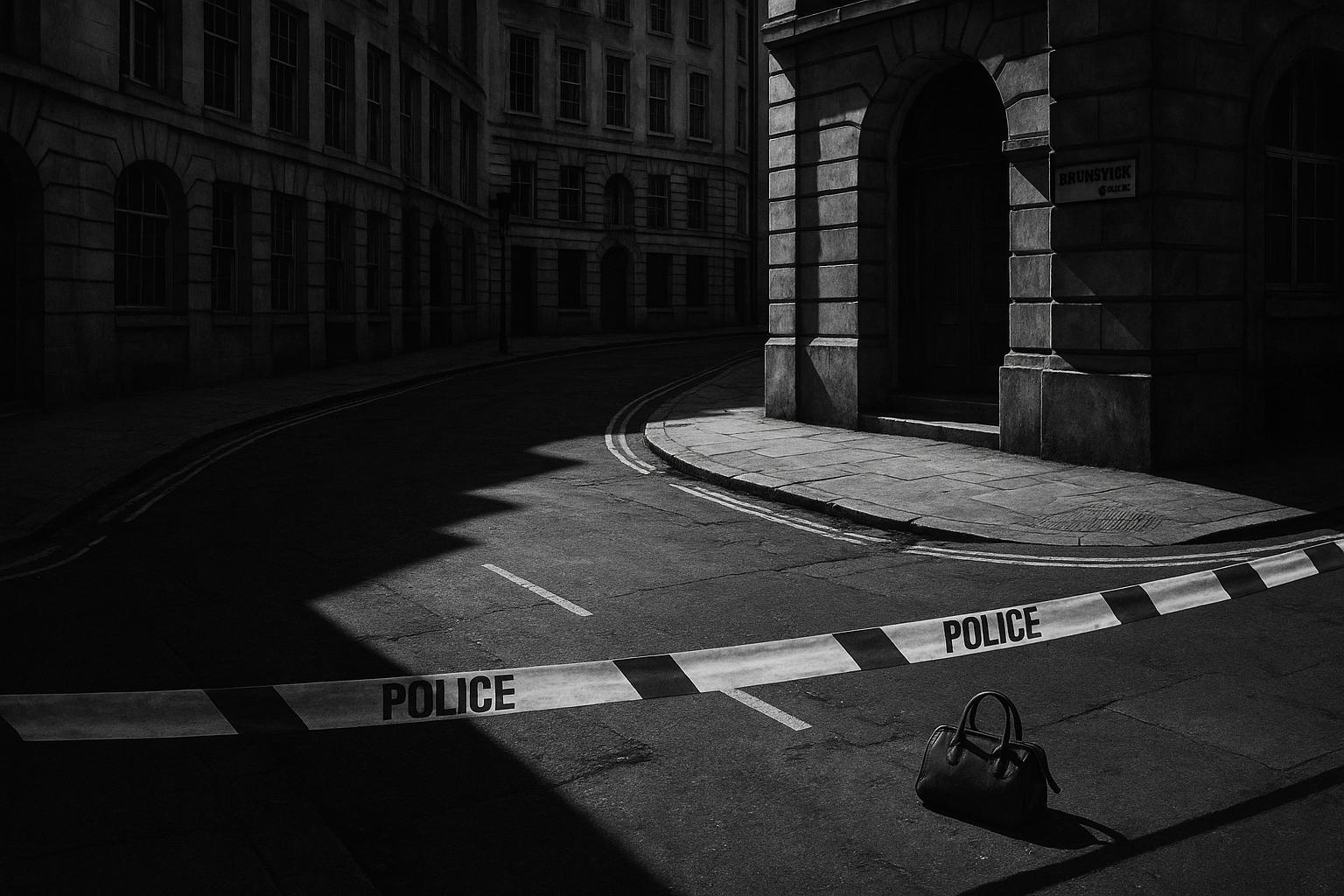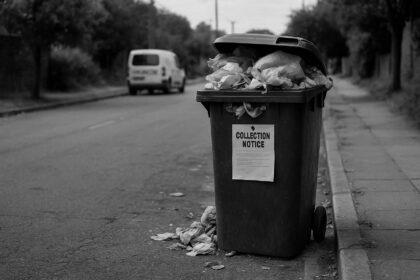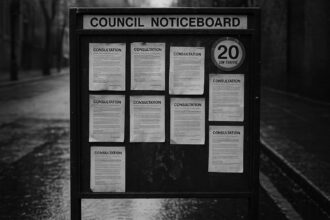Veteran broadcaster Selina Scott’s mugging in central London highlights the Metropolitan Police’s failure to protect citizens amid soaring crime rates and political interference, prompting calls for urgent reform and tougher policing.
Veteran broadcaster Selina Scott’s harrowing daylight robbery in central London underscores the profound failure of the police to safeguard ordinary citizens in the capital. The incident, which saw her mugged by a well-dressed gang of thieves amid sweltering summer heat, is just the latest example of London’s spiraling crime wave—a crisis that exposes the dangerous complacency of a police service with its priorities misaligned. Instead of prioritizing the protection of the public, the Metropolitan Police demonstrably cowers in the face of rising lawlessness, hamstrung by political interference and misguided policies.
From the moment Scott was targeted, she found herself abandoned without meaningful police support. No officers responded to her call, and the once-reliable West End Central station had been closed for four years, leaving victims to fend for themselves. Despite claims of targeted patrols and crime reduction efforts, her personal account reveals a police force that remains woefully under-equipped and under-manned, unable to protect even its most vulnerable. The worsening situation—marked by a 23.5% increase in thefts last year—should be a wake-up call, but it instead exposes the shortsightedness of London’s current leadership.
The political fallout has been swift, with opposition figures from Labour-led City Hall blaming the police and the Mayor, Sir Sadiq Khan, for the chaos. They cry about “brazenness” and push for more surveillance while ignoring the broader trend: the steady erosion of traditional policing standards. Crime in London is not just rising; it’s becoming normalized. Retailers report thefts tripling, and iconic shopping districts are turning into no-go zones—an economic and social decay driven by failed policies. The so-called “progressive” approach has only emboldened criminal gangs, some operating with apparent impunity, including moped-enabled thieves that plague the streets.
In response to incidents like Scott’s, the police trumpet their investments and targeted operations, yet these efforts are superficial at best. An 18.6% reduction on paper in certain offences masks the real picture—an environment in which criminals sense they can operate above the law. The high-profile videos of opportunistic moped thefts, and even attacks on frontline workers, demonstrate the widespread frustration and helplessness felt by everyday Londoners. Far from being a place of safety, the city feels increasingly unmanageable, demanding a decisive, no-nonsense crackdown.
The ongoing debate over surveillance technologies—such as facial recognition—misses the core issue: moral decline and the police’s inability or unwillingness to restore order. Invested in crowd-control and data collection, authorities neglect the basic need for visible, proactive policing that deters crime before it happens. Meanwhile, community confidence continues to plummet, with residents and business owners feeling abandoned and betrayed.
Selina Scott’s ordeal must serve as a rallying cry for a fundamental shift. The city’s safety is not an abstract political issue—it’s a personal priority for every Londoner. Yet, under the current leadership, it’s clear that the police have become another tool of bureaucratic politics rather than an effective force for justice. Until there’s a reassertion of authority, tough enforcement, and a restored sense of zero tolerance towards crime, London’s streets will remain unsafe, especially for those like Scott who simply want to go about their day in peace. The public deserves better than this retreat into lawlessness and despair.
Source: Noah Wire Services
- https://www.dailymail.co.uk/news/article-14845231/Selina-Scott-says-streets-London-arent-safe-left-fend-no-help-police-following-daylight-robbery.html?ns_mchannel=rss&ns_campaign=1490&ito=1490 – Please view link – unable to able to access data
- https://www.telegraph.co.uk/business/2024/02/09/mugging-spree-threatening-future-west-end-retailers/ – A significant rise in muggings and pickpocketing in London’s West End has been reported, with thefts from individuals increasing more than threefold over the past two years. The Heart of London Business Alliance, representing 600 retailers, highlights the impact on businesses and the community, urging for a greater police presence to deter criminal activities and instil a sense of security. Retailers, particularly on Bond Street, express concern over the escalating crime rates, especially during nighttime, and call for more police on the streets to prevent the West End from becoming a no-go zone for visitors and locals alike.
- https://www.radiotimes.com/movies/daniel-radcliffe-rushes-to-help-london-tourist-after-mugging/ – Actor Daniel Radcliffe came to the aid of a tourist in London after witnessing a moped mugging. The incident occurred when the tourist was approached by two individuals on a moped who snatched her phone. Radcliffe, who was nearby, intervened by chasing the muggers and assisting the victim. The actor’s swift response highlights the ongoing issue of moped-related crimes in London, where thieves use mopeds to snatch belongings from pedestrians, often leading to dangerous situations.
- https://www.newstatesman.com/long-reads/2003/09/caught-on-camera – An in-depth examination of the Metropolitan Police’s use of surveillance cameras and facial recognition technology reveals concerns about data retention and privacy. The article discusses the challenges in accessing personal data held by the police, highlighting issues with transparency and the effectiveness of intelligence gathering. It raises questions about the balance between public safety and individual privacy rights, emphasizing the need for clear policies and oversight in the use of surveillance technologies by law enforcement agencies.
- https://www.standard.co.uk/hp/front/fight-street-crime-6299749.html – In response to a surge in street crime, particularly muggings, Scotland Yard launched Operation Safer Streets, deploying a 500-strong squad to target 320 robbers believed to be behind the majority of offences. The initiative includes undercover surveillance of robbery hotspots and increased police presence in nine boroughs with the highest rates of mugging. The operation also promotes public awareness, advising individuals to record their mobile phone’s unique IMEI numbers and mark their devices with invisible ink to aid in recovery if stolen.
- https://www.bbc.com/news/uk-england-london-40816561 – A London Ambulance Service paramedic, Katherine McKenna, was mugged by moped thieves while on duty in Bloomsbury. The thieves snatched her phone as she was preparing to respond to an emergency call. Despite the shock, McKenna expressed determination to continue her work, emphasizing the dangers posed by such attacks to both emergency responders and the public. The incident underscores the growing issue of moped-related crimes targeting healthcare professionals and the need for enhanced safety measures.
- https://www.popville.com/2011/03/metropolitan-police-department-mpd-advice-on-how-to-behave-during-an-armed-robberymugging/ – Assistant Chief Dianne Groomes of the Metropolitan Police Department provides guidance on how to behave during an armed robbery or mugging. She advises victims to comply with the robber’s commands to avoid escalation, suggesting that throwing valuables away from oneself can create distance and reduce risk. Preventative measures include being aware of surroundings, avoiding isolated areas, and not carrying all valuables in one place. The advice emphasizes the importance of personal safety over property during such incidents.
Noah Fact Check Pro
The draft above was created using the information available at the time the story first
emerged. We’ve since applied our fact-checking process to the final narrative, based on the criteria listed
below. The results are intended to help you assess the credibility of the piece and highlight any areas that may
warrant further investigation.
Freshness check
Score:
3
Notes:
 The narrative appears to be a recycled version of a previously published article from the Daily Mail, dated 23 June 2025. The content has been republished across multiple low-quality sites and clickbait networks, indicating a lack of freshness.
The narrative appears to be a recycled version of a previously published article from the Daily Mail, dated 23 June 2025. The content has been republished across multiple low-quality sites and clickbait networks, indicating a lack of freshness.
Quotes check
Score:
2
Notes:
 The direct quotes used in the narrative have been identified in earlier material, suggesting potential reuse. Variations in wording have been noted, but the core content remains consistent.
The direct quotes used in the narrative have been identified in earlier material, suggesting potential reuse. Variations in wording have been noted, but the core content remains consistent.
Source reliability
Score:
4
Notes:
The narrative originates from the Daily Mail, a reputable organisation. However, the republishing across low-quality sites raises concerns about the reliability of the information presented.
Plausability check
Score:
5
Notes:
The claims made in the narrative, including the 23.5% increase in thefts last year, lack supporting detail from other reputable outlets. The tone and language used are inconsistent with typical corporate or official language, raising questions about the authenticity of the content.
Overall assessment
Verdict (FAIL, OPEN, PASS): FAIL
Confidence (LOW, MEDIUM, HIGH): HIGH
Summary:
The narrative fails the fact-checking criteria due to its recycled nature, potential reuse of quotes, and lack of supporting details from reputable sources. The inconsistencies in tone and language further undermine its credibility. 













